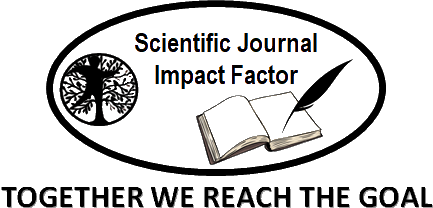The EVERYDAY OF PEOPLE WITH HIGH FUNCTIONAL AUTISTIC SPECTRUM DISORDER: an analysis of the Atypical Series
DOI:
https://doi.org/10.22289/2446-922X.V6N2A22Keywords:
ASD, Disorder, Autism, Functionality, Emotional, SocialAbstract
Autism is classified as a global developmental disorder, characterized by growth sharply atypical in social interaction and in communication and the presence of a restricted repertoire of activities and personal interests (APA, 2013). Based on this was realized this analysis essay of the American series Atypical, where the main character Samuel, a young of 18 years old diagnosed with ASD goes through moments of anguish, when seeks his independence, having an overprotective mother, an older sister who seeks to welcome, a father having difficulty communicating with him and friends who serve as motivation for your daily development. The idea is postulated that when an illness or disability occurs in one of the family members, a chain of emotional stages occurs and attitudinal approximately constant and universal, these being: shock, denial, depression, adaptation and reorganization (Klüber-Ross, 1996). It can be said that the discussion of the topic addressed is of total relevance so that there is greater inclusion of patients with ASD, intending to contribute to the increase of society's knowledge about the challenges faced by autistic patients, their families and friends.
Downloads
References
Amiralian, M. L. T. M. (1978). Psicologia do Excepcional. v. 8. São Paulo: EPU.
Associação Brasileira de Psiquiatria. (2013). Manual Diagnóstico e Estatístico de Transtornos Mentais. 5. ed. Arlington: Autor.
Delion, P. (2015). Autismo e parentalidade; Estilos clin., 20(1), 15-26.
Klüber-Ross, E. (1996). Sobre a morte e o morrer. São Paulo: Martins Fontes.
Leopoldino, C. B. (2015). Inclusão de autistas no mercado de trabalho: uma nova questão de pesquisa. Revista Eletrônica Gestão & Sociedade. 9 (22), 853-868.
Maia, F. A., Almeida, M. T. C., Alves, M. R., Bandeira, L. V. S. Silva, V. B., Nunes, N. F et al. (2018). Transtorno do espectro do autismo e idade dos genitores: estudo de caso-controle no Brasil. Caderno Saúde Pública, 34(8), e00109917.
Marques, M. H., & Dixe, M. A. R. (2011). Crianças e jovens autistas: impacto na dinâmica familiar e pessoal de seus pais. Archives of Clinical Psychiatry, 38(2), 66-70.
Souza, J. C., Fraga, L. L., Oliveira, M. R., Buchara, M. S., Straliotto N. C., Rosário, S. P. et al. (2004). Atuação do psicólogo frente aos transtornos globais do desenvolvimento infantil. Psicologia Ciência e Profissão, 24(2), 24-31.
Pereira, A. I. L., Fernandes, O. M., Relva, I. C., (2018). Sintomatologia psicopatológica e suporte social em pais de crianças portadoras de perturbação do espetro do autismo Aná. Psicológica, 36(3), 327-340.
Gomes, P. T. M., Lima, L. H. L., Bueno, M. K. G., Liubiana, A. Araújo, L. A., Souza, N. M., (2015). Autismo no Brasil, desafios familiares e estratégias de superação: revisão sistemática. J. Pediatr. (Rio J.) 91(2), 111-121.
Souza, J. C., Fraga, L. L., Oliveira, M. R., Buchara, M. S., Straliotto, N. C., Rosário, S. P., Rezende, T. M. (2004) Atuação do Psicólogo Frente aos Transtornos Globais do Desenvolvimento Infantil. Psicologia ciência e profissão, 24 (2), 24-31.
Downloads
Published
How to Cite
Issue
Section
License
Copyright (c) 2020 Psicologia e Saúde em debate

This work is licensed under a Creative Commons Attribution-NonCommercial-NoDerivatives 4.0 International License.
The authors declare that they participated in the elaboration of the manuscript in question, and that the cited manuscript is original and has not been previously published in part or in whole and that no other similar manuscript under their authorship is published or under analysis by another journal, whether printed or electronic. They further declare that they have not violated or infringed upon any copyright or other proprietary rights of other persons, and that all quotations in the text are true facts or based on research of considerable scientific accuracy. The authors undertake, when requested, to provide information to the editors regarding the data in this manuscript.
The magazine follows the Creative Commons standard (BY NC ND), which allows the remix, adaptation and creation of works derived from the original, even for commercial purposes. New works must contain mention of the author(s) in the credits. The site uses Open Journal Systems, a free open source system for managing and publishing journals developed with support and distribution by the Public Knowledge Project under the GNU General Public License.
































